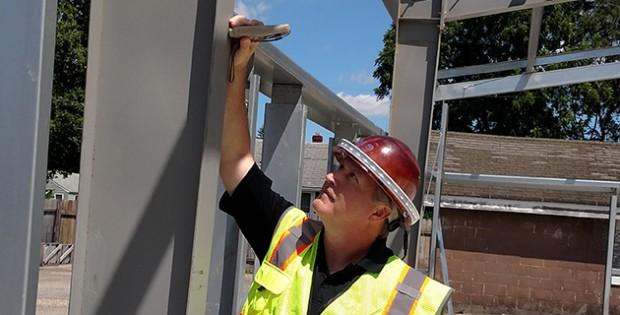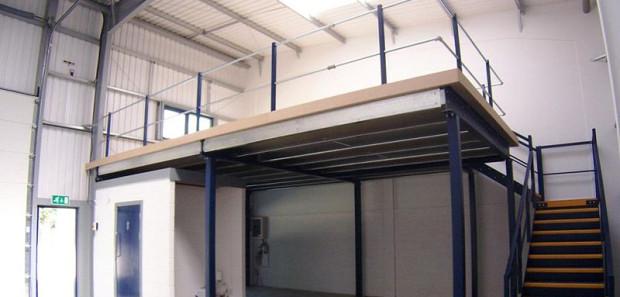What is Holding Your Small Business Back?

Being a small business owner is hard. You certainly don’t get enough credit, especially with all the hours you pour into your company. It doesn’t matter if you spend every waking moment at your storefront or put in 110%, the unfortunate fact, according to the Small Business Administration, is “about half of all new establishments survive five years or more and about one-third survive ten years or more.” The SBA goes on to say the probability of survival increases with a firm’s age. That makes sense. The longer you remain in a marketplace, the more time to cement yourself as a business. But let’s go back to the “50%” figure. Really, half of new businesses don’t make it to the 5-year mark, and even less ascend to the 10-year mark. Where is your company on the timeline? And what does that have to do with wanting to build a steel building?
First, ask yourself why do Small businesses fail, or more plainly, how are you holding your small business back? All the top magazines and blogs have the answers, and the pros can sum it up in one sentence: Small businesses fail because they can’t get a hold of their finances. So what kind of advice about your small business would you expect to hear from me?
Right now is the perfect time to take hold of your own small business, manage your finances and build a steel building. But before you do anything, do yourself a favor and make sure you and your company is in a good financial position to do so. I would never even begin to pretend that once you decide to build, all your problems will magically disappear and you’re automatically on the road to becoming a billionaire. I’m not going to insult your intelligence that way. Still, building a steel building is extremely advantageous in the long run. Let me explain.
Gain Equity
 Many companies occupy storefronts and office buildings and most likely pay rent to a landlord. While I’m not going off the deep end here, that money is not creating equity for you. The money spent on rent is going right into another person’s pockets when it could be an investment into your future. With your own building, you eliminate the rent payment. As a buyer, when you decide to build a steel building, the acquisition can be a capital gain. You can have serious tax advantages not allowed to renters, such as property tax and interest can be itemized for tax deductions. Plus, you will have the freedom to redecorate, make improvements or remodel with fewer restrictions. Steel buildings require little to no maintenance, so you most likely won’t spend extra money on costly repairs over the lifetime of the building. While your initial cost might be a little more, if you have a successful business, or plan on having a successful business, you need to be thinking cost savings in the long term.
Many companies occupy storefronts and office buildings and most likely pay rent to a landlord. While I’m not going off the deep end here, that money is not creating equity for you. The money spent on rent is going right into another person’s pockets when it could be an investment into your future. With your own building, you eliminate the rent payment. As a buyer, when you decide to build a steel building, the acquisition can be a capital gain. You can have serious tax advantages not allowed to renters, such as property tax and interest can be itemized for tax deductions. Plus, you will have the freedom to redecorate, make improvements or remodel with fewer restrictions. Steel buildings require little to no maintenance, so you most likely won’t spend extra money on costly repairs over the lifetime of the building. While your initial cost might be a little more, if you have a successful business, or plan on having a successful business, you need to be thinking cost savings in the long term.
Avoid the cheapest building
Not all steel buildings are created equal. Does the building supplier you’re looking at offer any long-lasting warranties? Do they actually manufacture their own product, or are they a broker who just purchased the building from another company with an actual manufacturing facility? Do they offer galvanized steel, or cheap red iron? Is that American made steel, or dumped steel from China or India? You’re allowed to ask all these questions, and get the correct answers.
Cheap buildings potentially come with parts missing or holes that don’t line up because they were fabricated in a factory where speed, not quality, was important.. In the construction industry, you truly get what you pay for. The cheapest buildings are the cheapest because companies don’t follow industry standards, and only look to pad their own bottom line. Savings in production costs might translate to quick and easy savings for you, but end up costing you more in the long run. Ask yourself: Does the cost of saving money in the initial transaction really matter when you have to pony up more cash during the product’s lifetime? Quality steel buildings are built to last, and you won’t need to worry about replacing parts because panels break or rot. Over a lifetime – which is what you’re buying for – a quality steel building has no comparison.
Put more resources into your company
When you don’t have to worry about rent or repairs, the extra profit instantly finds itself a place elsewhere, like operating or employee costs. Or just re-invest back into your company. When you build a steel building, you’re building a safe place for your business. At the very least, you can conserve your cash flow. What will you do with all the extra cash Hire more employees? Expand your marketing efforts? Invest in better technology? It’s up to you. At least you aren’t losing it to a landlord.
Build a steel building
 Have you ever seen the TV show “Shark Tank?” I love watching and seeing the part of the show where they profile a company and show the ‘where are they now” part. Often times, entrepreneurs enter the show, and tell the sharks they’re operating out of a small storefront themselves. So once they can afford it, or get an influx of cash, they quite often build a steel building. Next time, watch and see for yourself. You’ll see the rigid frames and everything. Those entrepreneurs are able to mass produce their product, increase their distribution, and grow their profit margins. Could they have done it in another type of building? I’m sure they could have, but most companies chose steel because it’s the most durable, flexible and versatile construction solution on the market. They choose steel buildings because generally they are half the cost of other traditional construction methods, and can be erected in half the time.
Have you ever seen the TV show “Shark Tank?” I love watching and seeing the part of the show where they profile a company and show the ‘where are they now” part. Often times, entrepreneurs enter the show, and tell the sharks they’re operating out of a small storefront themselves. So once they can afford it, or get an influx of cash, they quite often build a steel building. Next time, watch and see for yourself. You’ll see the rigid frames and everything. Those entrepreneurs are able to mass produce their product, increase their distribution, and grow their profit margins. Could they have done it in another type of building? I’m sure they could have, but most companies chose steel because it’s the most durable, flexible and versatile construction solution on the market. They choose steel buildings because generally they are half the cost of other traditional construction methods, and can be erected in half the time.
As a small business, you’ll need to make decisions based on your budget, timeline and customer base. Take care of all three when you decide to build a steel building.
Photo courtesy: kizzzbeth
« 3 Reasons Your Congregation Should Choose a Steel Church Building
What is Your Role in a Steel Building Project? »
Popular Posts

Every day, I get to begin construction projects with builders across the country. It’s just an exciting prospect to listen to enthusiastic do-it-yourselfers and construction professionals who are on the verge of adding a new workshop, agricultural or commercial building to their property. For some, including many first time builders I’ve spoken to, a building project can… …

Everybody likes to get more for their money. I know I’m guilty of purchasing things I don’t necessarily need because the deal is just too good to pass up. The same principle can apply to your clientele. If one of your customers wants a building with more space, but can’t sacrifice the square footage, it… …

